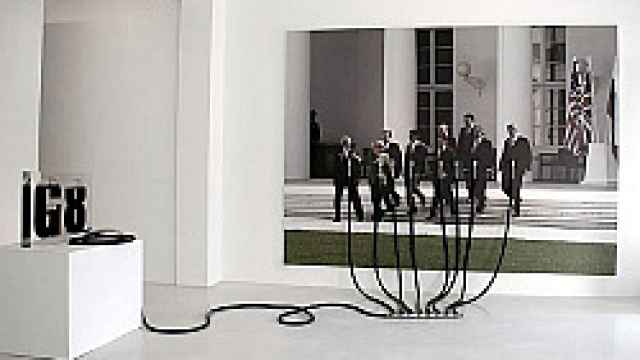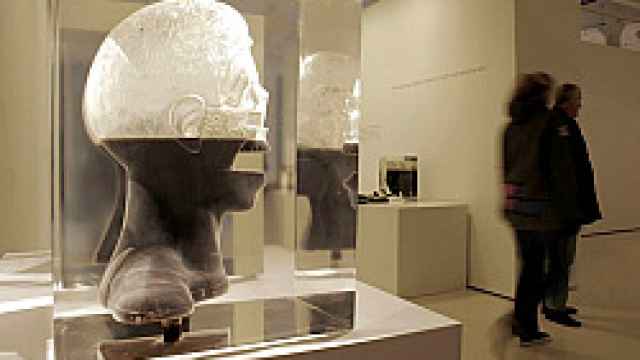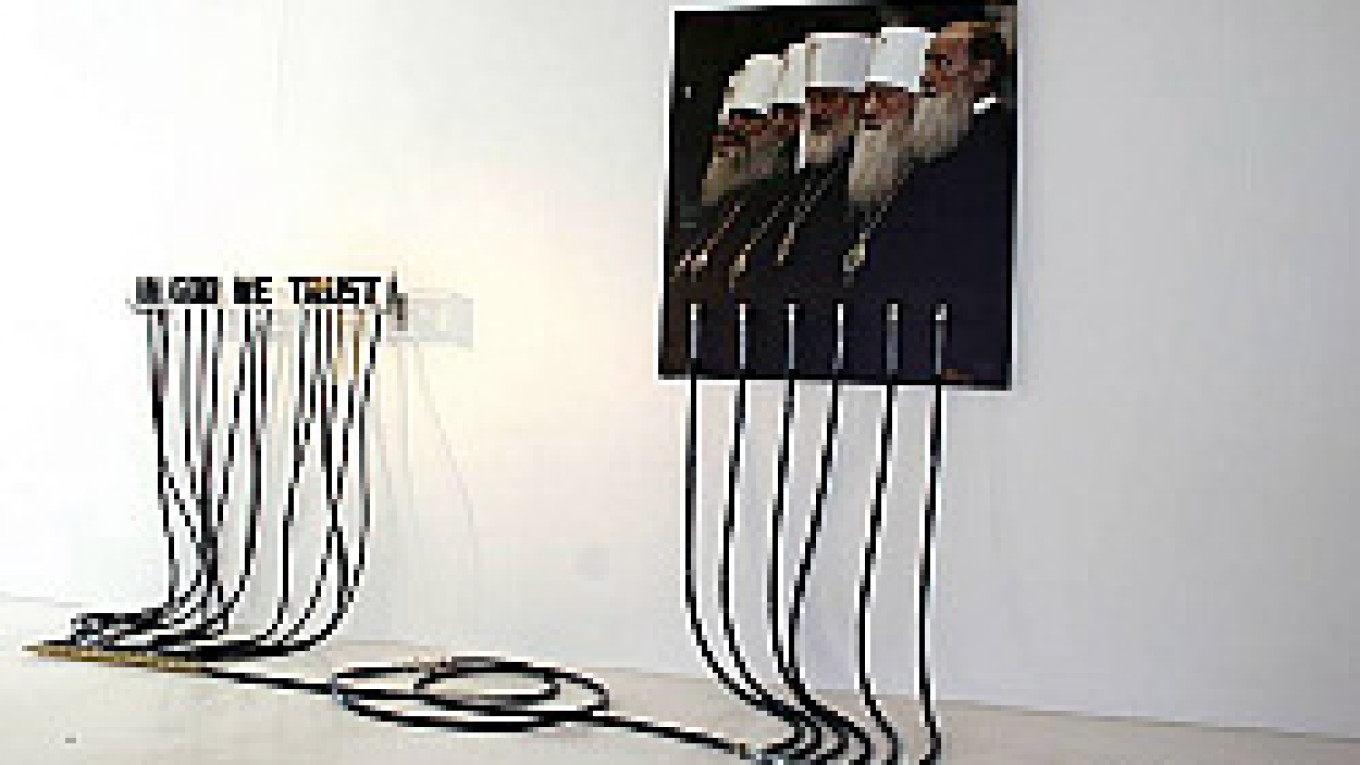Molodkin, who will represent Russia at this year's Venice Biennale, believes that oil is behind many of the world's conflicts, from the 2003 invasion of Iraq to Moscow's Chechen intervention. "I tried to understand why some politicians -- [Russian Prime Minister Vladimir] Putin or [former U.S. President George W.] Bush try to kill so many people where there is so much oil," the 43-year-old said in London.
In Venice this year, his featured work will involve shining light through two small, hollow perspex casts of the Winged Victory of Samothrace statue, one containing oil from Chechnya and the other blood from Russian soldiers who served there.
The result will be a projected image several meters high. Molodkin admits that the curator of the Russian pavilion in Venice is nervous about the work, which is to be called "Le Rouge et le Noir."

Kashya hildebrand gallery
Molodkin plans to turn human bodies into oil for his next artistic project.
| |
The main piece on show is a pair of cages. One is made up of hollow, transparent bars filled with oil and the second of bright light tubes fuelled by gas produced from the oil.
Both are based on the metal cage that held fallen Russian oil oligarch Mikhail Khodorkovsky in a courtroom during his trial for fraud and tax evasion, after which he was jailed.
Molodkin believes that post-Communist Russia is an "oil democracy" as opposed to a true democracy.
"With the drop in the price of oil, we have less democracy, because more people will go hungry, and more are likely to protest while the government is more likely to use the military to control them."

Kashya hildebrand gallery
Molodkin became fascinated with oil when he was a conscript in the army.
| |
"Maybe I also will be corrupted by oil," he said. "Everyone who works with oil begins to be corrupted by its power. Me too."
Molodkin and show curator Victor Tupitsyn say his larger works typically fetch $50,000 to $80,000, and those on show in London are on sale, although they are not priced.
The artist's fascination with oil dates back to his military service when he was transporting missiles, often in subzero temperatures.
"We would take the oil from the cisterns and heat the (rail) wagons and become filthy. We would go and ask villagers for food, covered in oil, and people would give us anything."
Molodkin said he had not personally benefited from links between Russia's superrich tycoons, many of whom are involved in the oil business, and the world of contemporary art.
Russians like billionaire Roman Abramovich were instrumental in driving prices for rare paintings to record levels before the onset of the financial crisis, reports said, and Abramovich's girlfriend Daria Zhukova has opened a gallery in Moscow.
"For me, it is surprising how people with all this money are suddenly welcomed into this world," Molodkin said. "Some of the biggest museums will do anything for them, and it annoys me."
Molodkin, whose conceptual works also touch on religion and the environment, intends to embark on his most provocative project yet by melting human bodies into oil.
"I have already done it using animals," he said with a grin.
A Message from The Moscow Times:
Dear readers,
We are facing unprecedented challenges. Russia's Prosecutor General's Office has designated The Moscow Times as an "undesirable" organization, criminalizing our work and putting our staff at risk of prosecution. This follows our earlier unjust labeling as a "foreign agent."
These actions are direct attempts to silence independent journalism in Russia. The authorities claim our work "discredits the decisions of the Russian leadership." We see things differently: we strive to provide accurate, unbiased reporting on Russia.
We, the journalists of The Moscow Times, refuse to be silenced. But to continue our work, we need your help.
Your support, no matter how small, makes a world of difference. If you can, please support us monthly starting from just $2. It's quick to set up, and every contribution makes a significant impact.
By supporting The Moscow Times, you're defending open, independent journalism in the face of repression. Thank you for standing with us.
Remind me later.


